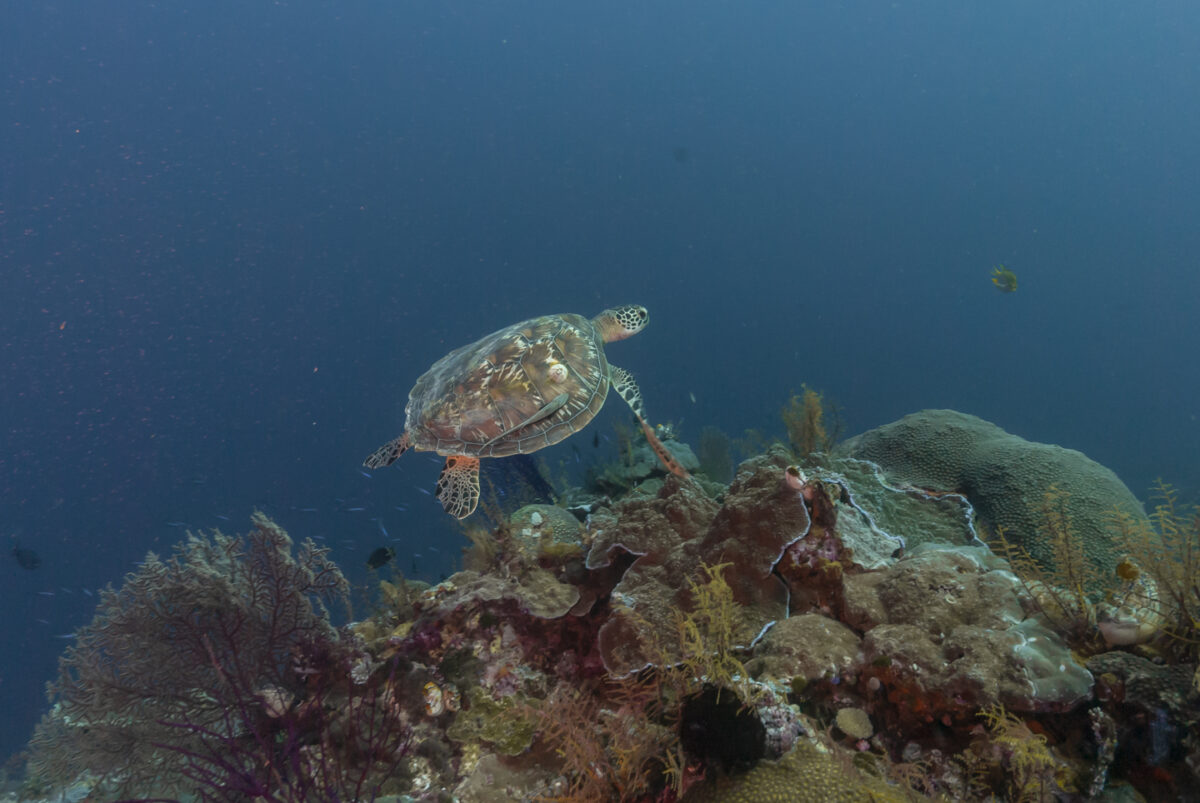In the spirit of World Ocean Day 2023 celebration (8 June, annually), we should take a moment to consider the work that needs to be done. From marine pollution and climate change to unsustainable practices and declining populations of endangered species, the challenges we face are immense. In the Arafura and Timor Seas (ATS) region, which encompasses Australia, Indonesia, Papua New Guinea and Timor-Leste, these countries are working together to protect and preserve this vital oceanic expanse for future generations.
Marine pollution knows no borders. Plastic debris and oil spills impact the entire ATS region and therefore require a transboundary response. To effectively tackle these challenges, collaborative efforts between multiple stakeholders and governmental bodies are urgently needed. By fostering partnerships and cooperation between Australia, Indonesia, Papua New Guinea and Timor-Leste, we can establish a united front against marine pollution, setting an example for global ocean conservation.In the ATS region, a major culprit of marine plastic pollution is abandoned, lost and discarded fishing gear (ALDFG). This issue requires immediate and concerted efforts to prevent and reduce the damage at source. In the short term, implementing effective waste management systems and raising awareness about the issue of ALDFG and proper waste disposal are key steps towards reducing and diverting plastic pollution. Long term, establishing a value-generating circular economy for maritime industries and fisheries activities should be the ultimate goal.
Another critical aspect of transboundary cooperation in the ATS region is oil spill prevention and response. Enhanced regional coordination, implementation of best practices and raising awareness about oil spill risk assessment, preparedness and response are integral to reducing the ecosystem impacts of such incidents. Collaboration among nations in the region will improve our ability to prevent and respond effectively to oil spills, thereby minimising their impact on marine life and coastal communities. Illegal, unreported and unregulated (IUU) fishing is a significant concern in the ATS region. Improving management and upscaling enforcement in small-scale fisheries operating illegally in transboundary areas is crucial for the sustainable use of marine resources. Through the implementation of regional plans and community-based action, we can address this issue holistically. Engaging fishing communities in identified hotspots is critical to ensuring the success of these initiatives.

Furthermore, the conservation of regional populations of endangered, threatened and protected (ETP) species is paramount. The successful delivery of agreed-upon plans and the establishment of a regional hub for the management of transboundary or migratory populations of ETP species are essential steps forward. Building resilience among ATS populations of ETP species in the face of climate change requires effective management of Marine Protected Area (MPA) networks and critical habitats. All four ATS countries have indicated their commitment to achieving a long-term vision of a healthy, resilient and productive marine ecosystem in the ATS region, through effective marine and coastal management. This includes expanding MPAs to safeguard biodiversity, protect critical habitats and ensure sustainable fisheries for present and future generations. By designating and properly managing these protected areas, we can create sanctuaries where marine life can thrive and contribute to the overall health of the ocean.
The transboundary mission in the ATS region aims to foster social, ecological and economic progress through a regional partnership centred around the blue economy. This partnership recognises the intrinsic connection between a healthy marine environment and human well-being. By promoting sustainable economic activities such as responsible fisheries, tourism and renewable energy, we can create a win-win situation for both nature and communities. This approach supports the livelihoods of coastal communities while ensuring the long-term sustainability of marine resources.

Mainstreaming Gender Equality and Social Inclusion (GESI) can help ensure women and men have the same opportunities to participate and benefit equally from conservation efforts. Empowering coastal communities, including indigenous groups, to participate in marine conservation initiatives ensures that diverse perspectives and traditional knowledge are considered in decision-making processes. By recognising and addressing the unique challenges faced by women and marginalised groups in the ATS region, we can create a more just and sustainable future for all.
In conclusion, the ATS region faces many transboundary issues that urgently demand the collective efforts of multiple stakeholders and governmental bodies. By prioritising collaborative approaches, expanding MPAs, embracing a blue economy-orientated regional partnership and mainstreaming GESI, we can foster social, ecological and economic progress. Together, we can protect and conserve our marine resources, ensuring the health and vitality of the ocean for future generations.
As we celebrate World Ocean Day, let us remember that the fate of our oceans rests in our hands. Together, we can make a difference and create a sustainable future where the ocean thrives, supporting both human well-being and nature.
By Dr Handoko Adi Susanto
This article is also published in The Jakarta Post


